The ‘1 Nojor’ media platform is now live in beta, inviting users to explore and provide feedback as we continue to refine the experience.
Nahid Islam and Asif Mahmud Sajib, student leaders of the July-August uprising, confirmed that they were held at the Aynaghar torture cells operated by the Directorate General of Forces Intelligence (DGFI). During an inspection visit with the Chief Adviser on Wednesday, both leaders recognized the rooms where they had been detained. Nahid recalled that the room where he was held had a small basin-like structure used as a toilet. He noted that after August 5, partitions between cells were removed, and the entire space was repainted. Asif identified his cell by the exhaust fan installed on its wall. Both were forcibly taken in plain clothes and detained in Aynaghar during the uprising.

Former Director General of the National Telecommunication Monitoring Center (NTMC), Ziaul Ahsan, appeared before the International Crimes Tribunal on February 12 in connection with cases of enforced disappearances and extrajudicial killings. The hearing is scheduled to take place before Justice Golam Mortuza’s bench. Earlier, on January 6, the tribunal had issued arrest warrants against 12 individuals, including the ousted Sheikh Hasina, for their alleged involvement in enforced disappearances and extrajudicial executions. The court had ordered their arrest and production before the tribunal by February 12.
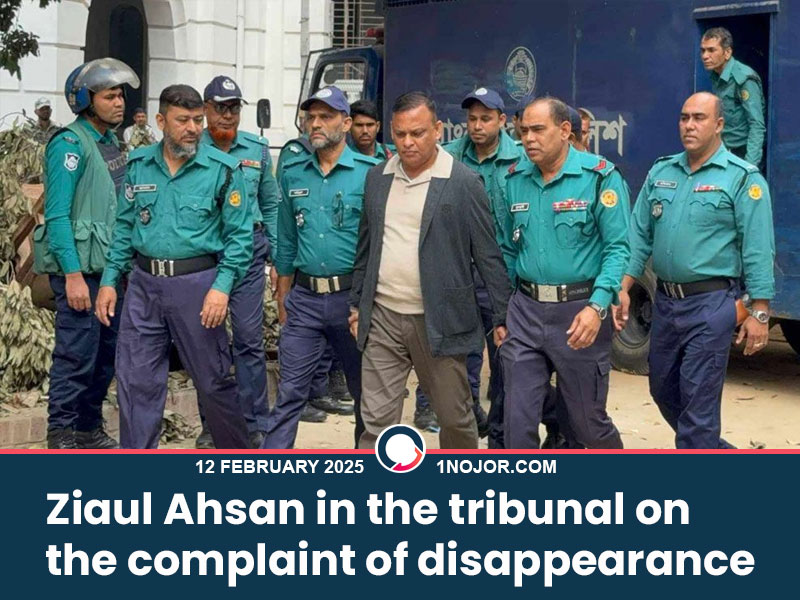
After visiting the infamous ‘Aynaghar’ torture cells, Chief Adviser Muhammad Yunus described the experience as “a horrifying sight.” Speaking to the media after his inspection of Aynaghar locations in Agargaon, Kochukhet, and Uttara at 11 AM, he said, “No matter how much I had heard about the brutality, witnessing it firsthand felt unbelievable. Is this truly our world?” Reports suggest that between 700 to 800 such torture cells exist across Bangladesh. The Chief Adviser further stated, “What I have seen here is a reflection of the nation’s grim reality.” He assured that thorough documentation of these sites would be made for national awareness.
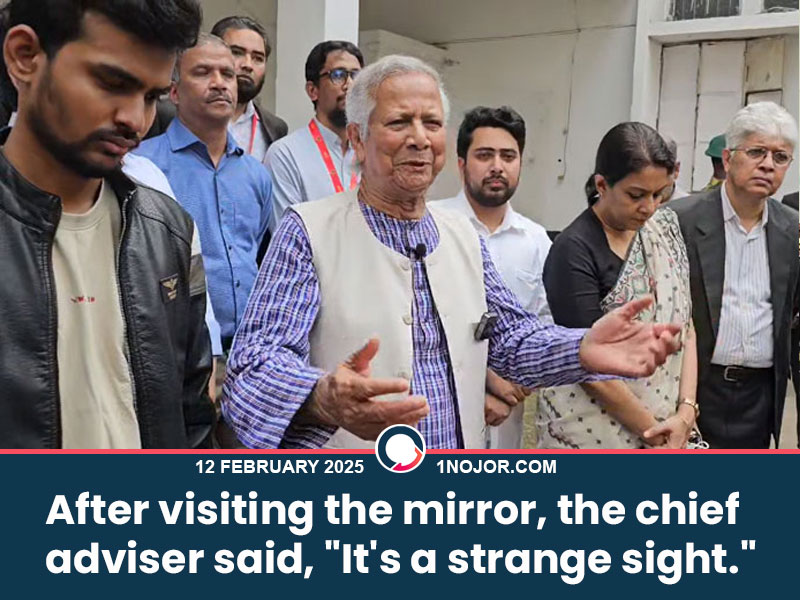
Detective Branch (DB) police have arrested Superintendent of Police (SP) Tanvir Salehin Iman from the Bangladesh Police Academy in Sarada, Rajshahi. Additional Deputy Inspector General (DIG) of Rajshahi Range Police, Sarwar Jahan, confirmed that a DB team from Dhaka took SP Tanvir Salehin Iman into custody last night. The exact charges against him remain undisclosed. Iman, originally from Kishoreganj, is the son of freedom fighter Md. Iqbal, a former General Secretary of the Awami League’s Karimganj unit. He joined the police force in 2010.

Indian Prime Minister Narendra Modi attended the AI Summit in France, where an unexpected diplomatic moment caught attention. According to a report by Turkey’s Anadolu Agency, French President Emmanuel Macron seemingly ignored Modi while shaking hands with other world leaders. A viral video on social media shows Modi extending his hand while seated next to JD Dance, but Macron bypassed him entirely, greeting others instead. However, earlier during the welcome, Macron had embraced Modi.

Following strong protests by the Bangladesh Border Guard (BGB), India’s Border Security Force (BSF) has removed a surveillance camera installed near the zero line of the border in Bhurungamari’s South Bashjani area. The camera, positioned on a tree facing Bangladesh near the historic Jora Mosque, was set up on February 9 at around 2 AM. BGB lodged multiple complaints but initially received no response. After a flag meeting on February 11, BSF agreed to dismantle the camera, which was taken down later that night.
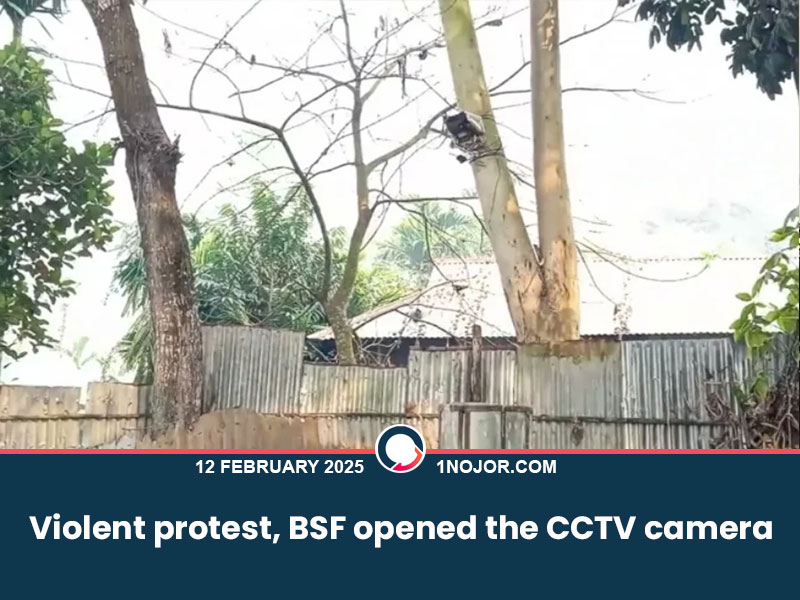
During his visit to the ‘Aynaghar’ detention site, Chief Advisor Muhammad Yunus condemned the previous Awami League government, stating that it had ushered in an “era of darkness” in Bangladesh. Referring to the facility as a “monument of Sheikh Hasina’s fascist regime,” he recalled that it was used for enforced disappearances. Yunus made the visit following a meeting with the Commission on Enforced Disappearances, which had been investigating cases of missing persons.
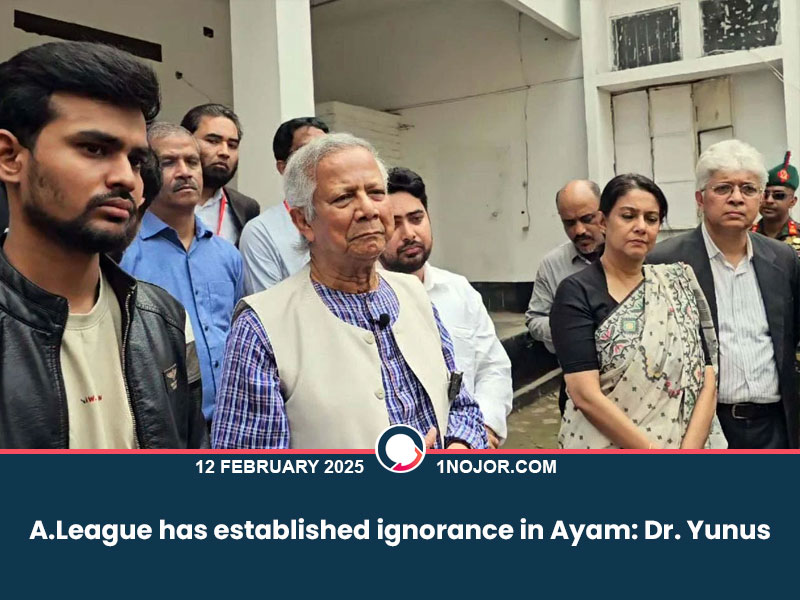
Retired Brigadier General Jahangir Alam Chowdhury, an advisor to the interim government, has highlighted the crucial role played by the Ansar force in maintaining security and supporting development efforts. He noted that the force contributes to grassroots law enforcement, disaster response, anti-land grabbing operations, and diplomatic security. Additionally, Ansar personnel assist the military in the Chittagong Hill Tracts and provide security during major religious events.

Following the fall of the Awami League government due to the student-led uprising, the Supreme Court, under Article 106 of the Constitution, endorsed the formation of an interim government led by Muhammad Yunus. A legal challenge against the legitimacy of this government was dismissed, with the court ruling that the President acted lawfully in consulting the Supreme Court for guidance. The verdict also recognizes the July uprising as a significant part of Bangladesh’s history.

A bus parked overnight in Tongibari, Munshiganj, was set on fire early Tuesday, killing a 14-year-old helper named Shahabir, who was sleeping inside. The driver fled after the incident, and authorities are yet to determine how the fire started. Locals, who noticed the blaze and alerted the fire department, managed to extinguish the flames, but Shahabir’s body was later recovered from the charred vehicle.
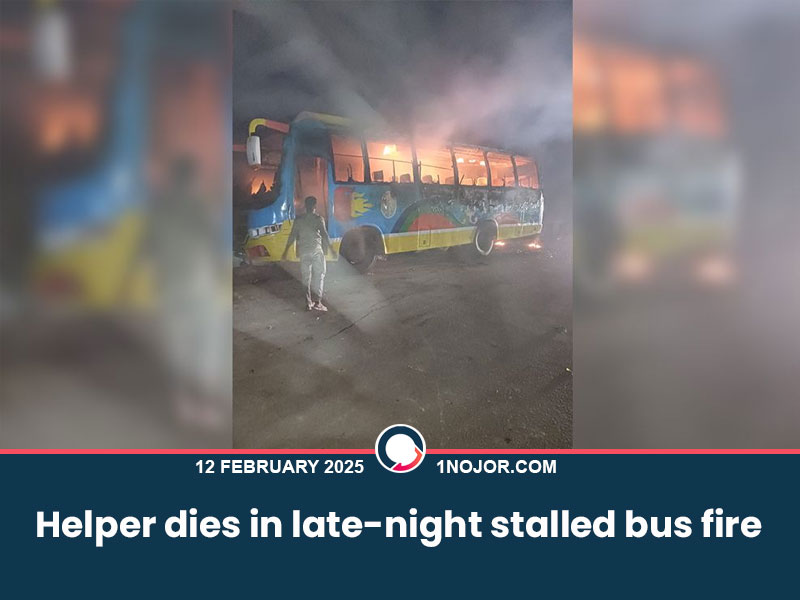
Interim government Chief Advisor Muhammad Yunus visited the controversial ‘Aynaghar’ detention site on February 12, accompanied by both local and international journalists. His assistant press secretary, Faiz Ahmad, confirmed the visit. The decision was made following a cabinet meeting on February 6. During a recent briefing, the Chief Advisor was presented with findings from the Commission on Enforced Disappearances, prompting him to inspect the site firsthand.

Investigators claim that former Awami League state minister Dr. Enamur Rahman was responsible for the deaths of 62 people in Savar and Ashulia during the July uprising. During a court hearing on Wednesday, the lead investigator stated that Savar and Ashulia witnessed the worst violence of the anti-discrimination student movement. He alleged that Enam, a wealthy politician, financed the brutal crackdown, which resulted in 41 deaths in Ashulia and 21 in Savar. He also revealed that some bodies were burned using gunpowder to destroy evidence.
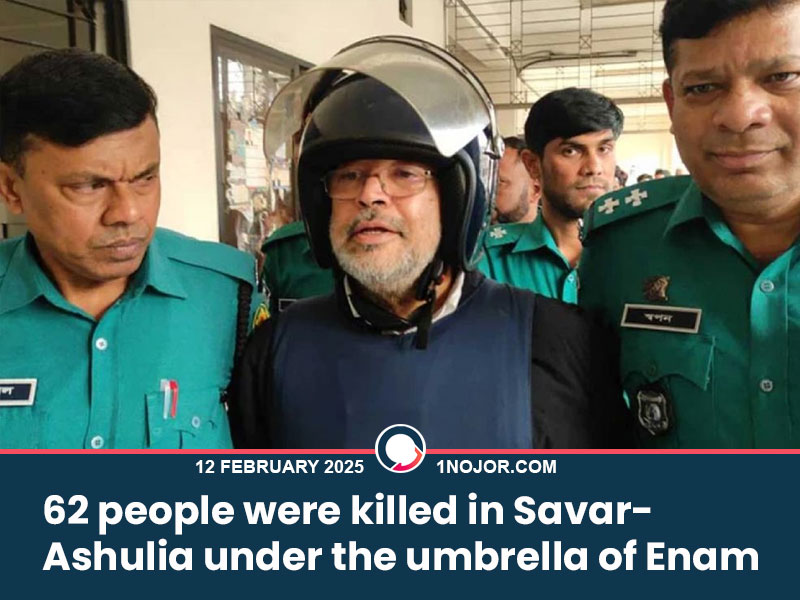
Tariq Abu Jabal and his family sought refuge in a school to escape Israeli airstrikes, but the attack still reached them—his wife was killed, and his child went missing. For a year, he had no knowledge of whether his son, Mohammed, was alive. Then, during a TV interview, Abu Jabal recognized his son’s face. It was later revealed that another family, also fleeing the bombing, had found the child alone and crying at the school and had taken him in. The reunion has given Abu Jabal a renewed will to live.

A court has granted a five-day remand for former state minister Enamur Rahman in connection with the murder of Shahid Kaiyum, a Comilla University student, during the July uprising in Savar. According to the case details, Kaiyum was shot dead at the Savar bus terminal on August 5. His mother later filed a case seeking justice. Meanwhile, Awami League figures Dhirendra Debnath Shambhu, Salman F Rahman, and Abdullah Al Mamun have been arrested in connection with a separate murder case in Ashulia.
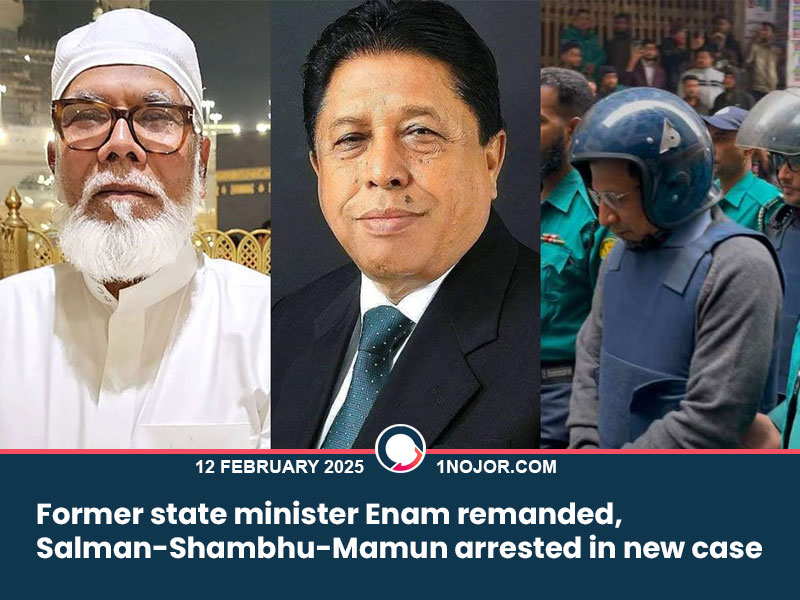
Ferry operations on the Daulatdia-Paturia route resumed after a 2.5-hour disruption due to heavy fog. On Wednesday morning at around 8 AM, authorities restored ferry movement after visibility improved. Earlier, dense fog had severely impacted navigation, leading to a full suspension of services at 5:40 AM out of safety concerns. During the suspension, six ferries remained anchored at the Daulatdia terminal.

The ‘1 Nojor’ media platform is now live in beta, inviting users to explore and provide feedback as we continue to refine the experience.